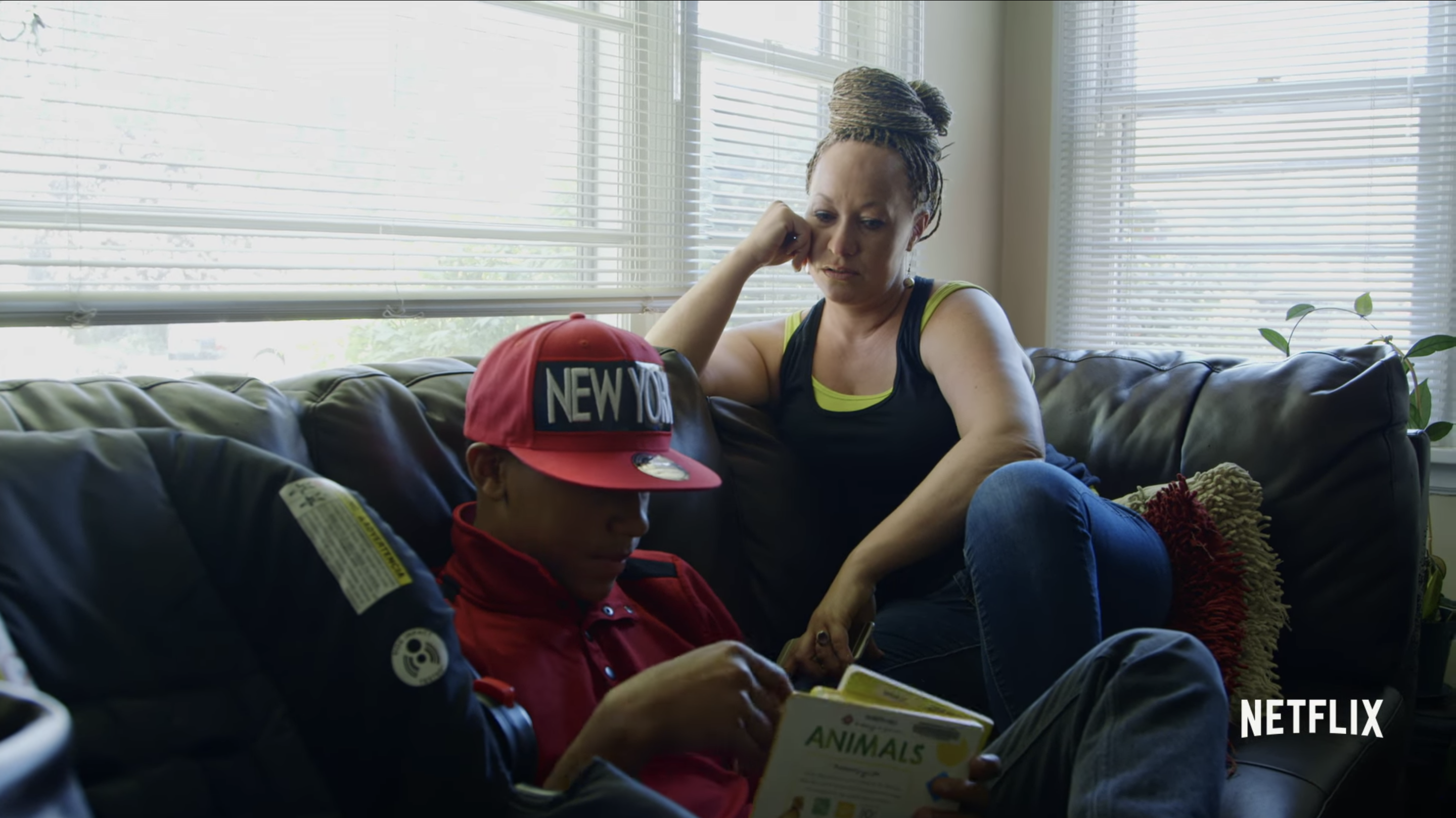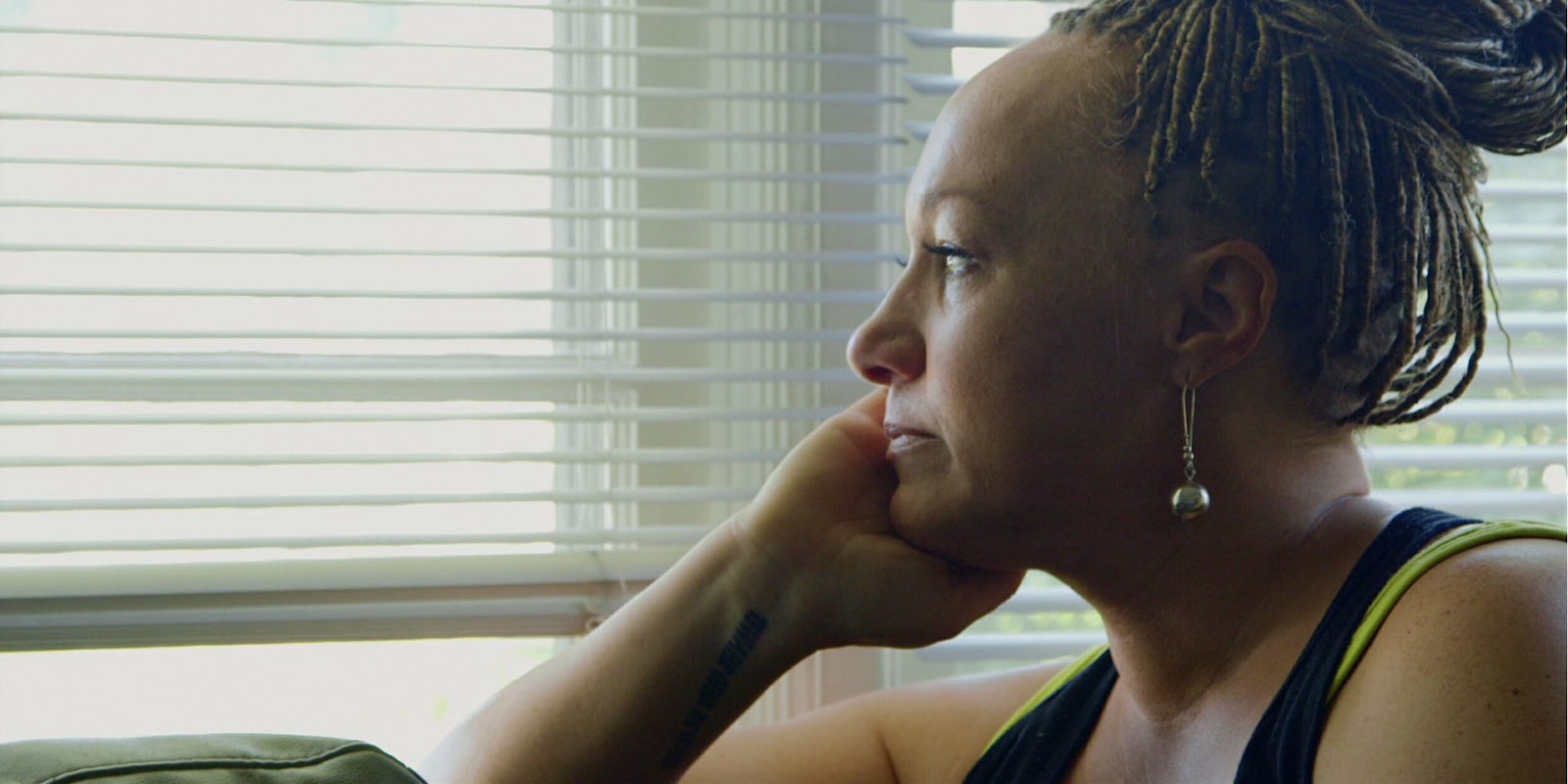Whenever Rachel Dolezal—the former Spokane, Washington NAACP president who identifies as Black but isn’t—sits down for an interview or agrees to open up about her life through a book or with a documentary, she’s hoping it will go a certain way. She hopes that this time people will understand where she’s coming from and that they won’t ask certain questions about how she lied about being Black or her wording. It rarely does. In between those trips back to the limelight, Netflix’s The Rachel Divide showcases just how the story that introduced her to the world uprooted her life, but those hoping for any kind of reflection or retrospect from Dolezal will be left disappointed.

The film might not have necessarily aimed to humanize Dolezal, but it ends up happening to an extent as The Rachel Divide closely follows Dolezal’s life. Her face is instantly recognizable and enough for strangers to start filming her wherever she goes, so she spends most of her time at home, where she only sees her two sons Izaiah and Franklin, her sister Esther, and the women who come to Dolezal to do their hair.
She’s unable to find a job after she’s let go from her position at Eastern Washington University, at one point complaining that no place wants to be the first to give her a job again. Dolezal hopes that the backlash over her race will blow over, something akin to a family feud, but when she relays this to a friend, the friend tells her to move to Mars. Even choosing the race of her newborn son on a form proves tricky: According to Dolezal, Washington state says a child’s race is the same as their mother’s.
Dolezal also reveals aspects of her childhood and having grown up with parents she said abused her and her siblings. Throughout the film, Dolezal is very protective of her sons—Izaiah used to be her adopted brother before she gained custody of him—and she’s aware enough of what putting them in the limelight can do. She also blames her parents, whose interviews with the media painted her as a liar and a fraud, and believes that her parents are punishing her with the backlash.

But on the other hand, critics and the people who knew her are left to struggle with what Dolezal has done and how it affects her work, something the documentary doesn’t come to a consensus on. Is her previous work advocating for social justice and police reform now made moot because she lied about her race? How much of the hate mail she received, both before and after she made headlines, was real? And every time she appears back in the spotlight to highlight her own beliefs, how much attention is she taking away from Black women and their projects?
Director Laura Brownson tackles the complexities surrounding Dolezal, which works better when it focuses on the people in Dolezal’s life and those who were affected by it more so than Dolezal herself. Although Dolezal won’t apologize for who she is and sticks to her convictions about how she identifies, it’s evident that it’s causing a riff even among those who love and support her. Her sister’s court case, in which Dolezal was supposed to testify, is dropped in part due to Dolezal’s credibility. Her sons support how she identifies, but even they begin to lose their patience with how much of herself she puts out there for the world to see and tear apart; her teenage son Franklin openly says that he resents some of the choices she made and says that her book and the documentary will bite him in the ass. He knows that it could go away if his mother just apologized and called herself white, but he also knows that she’ll never do it.
Toward the end of the documentary, Dolezal legally changes her name to Nkechi Amare Diallo, and for once she’s not met with much resistance; the clerk even notes how painless it was for her to do so. But it rings hollow considering the struggles others have when attempting to legally change their own names.
Dolezal may have a new name, but she’s still embracing many of her old ideas and in the end, The Rachel Divide feels like a feedback loop. And soon enough, we’re bound to hear it again.
The Rachel Divide is now streaming on Netflix.
Still not sure what to watch on Netflix? Here are our guides for the absolute best movies on Netflix, must-see Netflix original series and movies, and the comedy specials guaranteed to make you laugh.


